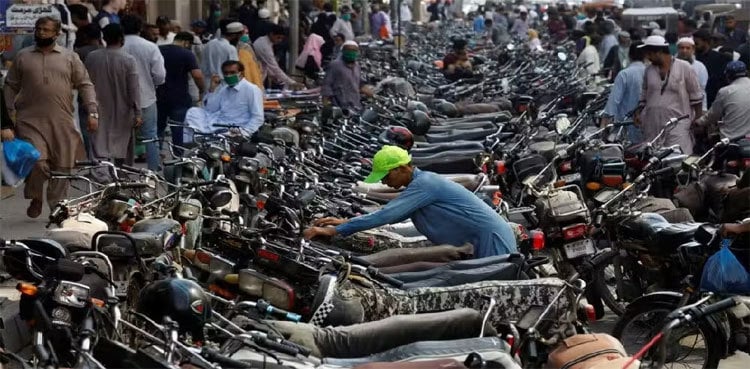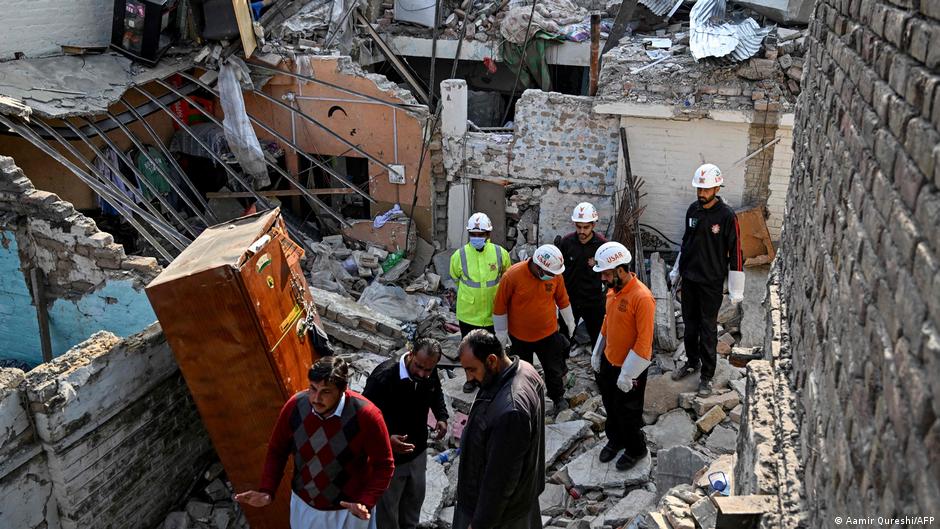- Dense fog conditions prompt partial closure of several motorways Dawn
- Motorways now open for traffic, say police following partial closure due to dense fog conditions Dawn
- Dense fog grips Lahore, freezing temperatures disrupt daily life and…
Category: 1. Pakistan
-
Dense fog conditions prompt partial closure of several motorways – Dawn
-

Crackdown on parking mafia continues in Karachi
KARACHI: During ongoing operation against illegal parking mafia in Saddar area, 12 more individuals have been arrested for extorting citizens under the guise of parking fees.
In the city’s central Saddar area, members of the so-called parking…
Continue Reading
-

‘We can’t rely on goodwill’ – NZ lags behind on battling AI creation of sexual images
Grok has allowed users to create sexualised images of people without their knowledge or consent.
Photo: Jonathan Raa / NurPhoto via AFPNew Zealand lags behind other countries in clamping down on fake images of naked women and…
Continue Reading
-
Officials, healthcare workforce decry mandatory bodycam order for Punjab hospital staff – Dawn
- Officials, healthcare workforce decry mandatory bodycam order for Punjab hospital staff Dawn
- Punjab decides to ban entry of medical representatives in government hospitals Minute Mirror
- Hospital staff to wear body cams as Punjab tightens rules
Continue Reading
-

The private club set on changing solo travel – ‘for the sort of woman who orders from the middle of the wine list’
‘Women are so much more confident… and they now have a lot more economic clout,’ says club founder
Solo travel is a rising trend. Photo: Getty
Solo travel — especially female solo travel — is on the rise. Women now account for the…
Continue Reading
-
Pakistan making significant progress in global economic partnerships – RADIO PAKISTAN
- Pakistan making significant progress in global economic partnerships RADIO PAKISTAN
- Chasing every dollar is a policy mistake Dawn
- Finance ministry admits transparency gaps in key investment projects The Express Tribune
- Over 21,000 new companies…
Continue Reading
-

Newlyweds among 8 killed in Islamabad explosion
An explosion at a house following a wedding reception in Pakistan’s capital Islamabad has killed at least eight people, police said on Sunday.
Local authorities said that the blast, which is believed to have been caused by a gas leak, took…
Continue Reading
-
Bannu CTD kills two terrorists in IBO – Dawn
- Bannu CTD kills two terrorists in IBO Dawn
- Terror attack on police check post foiled in Bannu The Nation (Pakistan )
- Pakistan: Police personnel injured after attack on vehicle in Khyber Pakhtunkhwa IANS LIVE
- Two terrorists involved in police…
Continue Reading
-
Pakistan’s struggle to scale its exports – Dawn
- Pakistan’s struggle to scale its exports Dawn
- OPINION: If wishes were horses: the USD 63bn export illusion Business Recorder
- Inefficiencies limit Pakistan’s sugar exports to just $1.6 billion over a decade: report Profit by Pakistan
- Rewiring…
Continue Reading
-
Wide-ranging reforms launched to transform railways into profitable organization – RADIO PAKISTAN
- Wide-ranging reforms launched to transform railways into profitable organization RADIO PAKISTAN
- Major rail-based transport plan approved to connect cities in Sindh Dawn
- ’67 per cent of existing PR track overaged’ The Express Tribune
- Asian…
Continue Reading